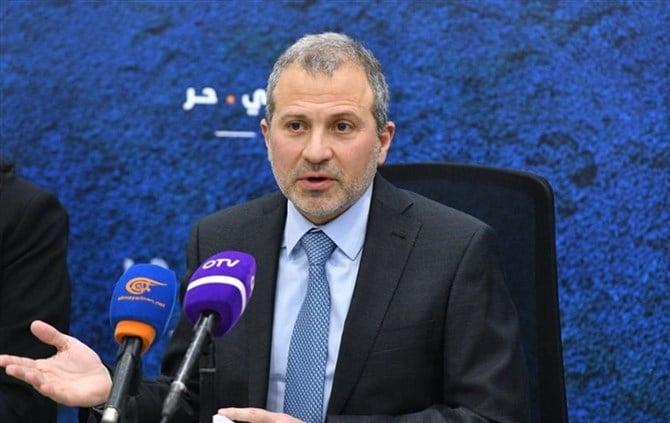The president of the Free Patriotic Movement, MP Gebran Bassil, stated during an appearance on LBC’s “Twenty Thirty” program with journalist Albert Kostanian that “the nomination of Ambassador Nawaf Salam for the premiership was based on his reformist credentials and the consensus surrounding him.” Bassil noted that there had been prior communication with Salam and personal acquaintance, adding: “We have nominated him for previous governments as well. His potential leadership represents a reassuring choice, not a challenge to anyone, and is aimed at building a functional state and advancing reforms.”
Bassil emphasized that Nawaf Salam was the first choice but acknowledged that other candidates, such as Fouad Makhzoumi, were also considered. He remarked: “This is a Lebanese-led process that has produced a prime minister whose character qualifies him to maintain strong relations domestically and abroad.” He added that the Free Patriotic Movement’s participation in the government hinges on agreement with the appointed prime minister: “If we could not agree with the candidate, we would naturally choose not to participate. However, with Nawaf Salam’s appointment, participation is now a viable option.”
Bassil underscored the importance of including specialists and competent individuals in the government while ensuring fair representation, which is essential for the government to earn public confidence. He stressed: “Marginalizing the Shiite community must not be an option, nor is there any intention to do so. There should be no perception of winners and losers. Even during President Michel Aoun’s tenure, although we preferred not to see Najib Mikati as prime minister, we accepted his nomination without issue. We may disagree with the Shiite duo’s choices, but not with the Shiite community itself, and there is no justification for excluding them from representation in the government.”
Bassil further stated: “No one should feel defeated. For example, last Thursday, we lost the parliamentary elections, but immediately pledged our support to the President of the Republic. We turned the page on the presidential elections and consulted President Joseph Aoun before issuing any position today.”
On the pressing challenges ahead, Bassil highlighted three critical areas for Prime Minister-designate Nawaf Salam:
1. Resolution 1701 and the ceasefire agreement
2. Syrian refugees – addressing their return and mitigating the impact of the Syrian crisis
3. The financial crisis – implementing reforms, conducting a criminal audit, restructuring the banking sector, and managing state assets effectively.
He also stressed the need for political reforms, particularly the implementation of the constitution and unfulfilled aspects of the Taif Agreement, including decentralization.
Bassil concluded: “These reforms are essential for Lebanon’s stability and progress.”




